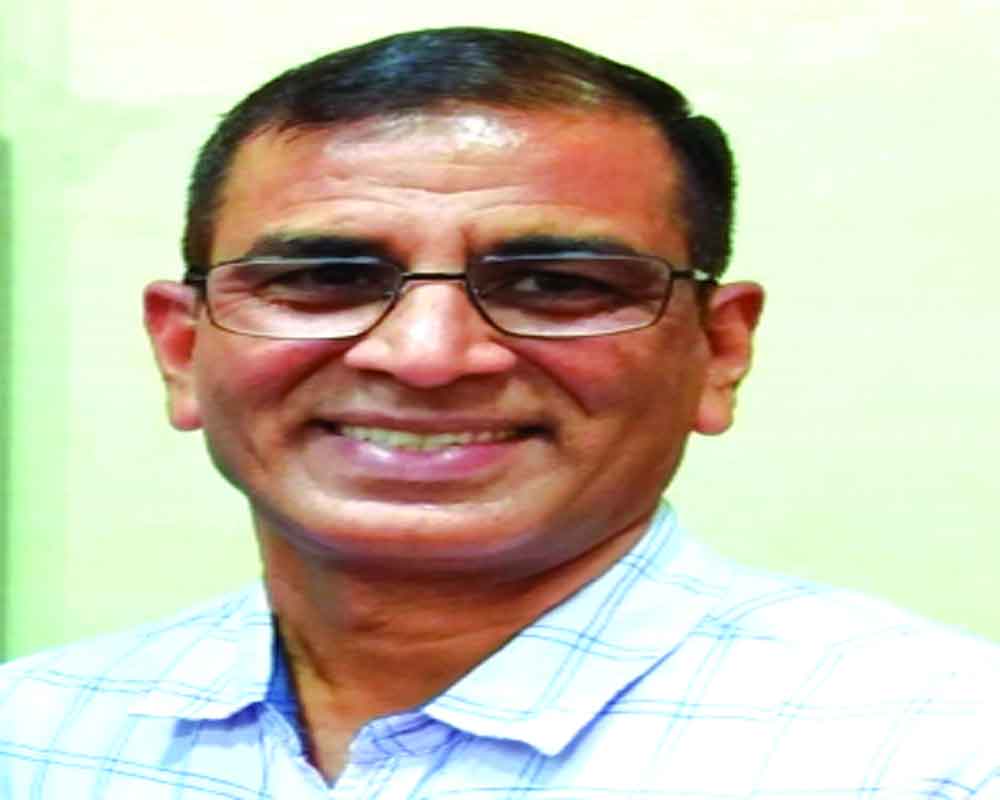Childhood obesity is increasingly becoming a pressing concern among the majority of parents. Dr VK Yadav highlights the misconception that a healthy appearance equates to fitness, emphasizing the need to address this serious medical condition
There is a general perception in our society that if a child is healthy in appearance, then he/she is fit, but this is not true. In actuality, he/she may be overweight or obese. Childhood obesity is a severe medical condition affecting children and adolescents. It occurs when a child's weight is significantly higher than normal for his/her age and height. The Indian Academy of Pediatrics has declared childhood obesity as a disease.
According to the World Obesity Atlas 2022, by 2030, nearly 27 million children in India will suffer from obesity. These will also include 12 million children aged 5 to 9 years. If children are obese, then the risk of heart disease and diabetes increases manifold.
Since obesity disproportionately affects adolescents (ages 12–19), the adverse effects of excess fat may be particularly prominent during this critical period of development. Symptoms of chronic cardiometabolic disease commonly seen in adults, such as hypertension, hyperglycemia, dyslipidemia, and inflammation, are now becoming increasingly common in obese adolescents too. There is a dynamic interrelationship between obesity and psychosocial health, as obese adolescents may have increased stress levels, depressive symptoms, and reduced resiliency.
However, both obesity and underweight are considered forms of malnutrition. According to the World Health Organization's (WHO's) analysis of global data, the obesity rate among children and adolescents worldwide in 2022 will quadruple the rate in 1990. Statistics from the National Family Health Survey also show that obesity among school-going children in India is taking the form of an epidemic. According to a recent survey conducted in Delhi, 45 percent of children in private schools and 7 percent of children in government schools of the capital are suffering from obesity. Surprisingly, obesity is also seen in school children in rural areas of the country, whereas usually, the bodies of children and adolescents in the village are slim and thin.
It is a matter of concern that due to obesity, school children are suffering from high blood pressure, diabetes, heart disease, asthma, and thyroid diseases at an early age. Due to these deadly diseases, the education of children deteriorates, and the lives of their family members are also affected. Increasing obesity also results in low self-esteem and depression in children. Some studies claim that 364 million adolescents and youth (10-29 years) in India are overly occupied with smart gadgets and avoid physical workouts.
Reducing obesity in children requires a comprehensive approach that addresses various factors contributing to excess weight gain.
Here are some strategies to help combat childhood obesity:
Promote Healthy Eating Habits
Encourage children to consume a balanced diet rich in fruits, vegetables, whole grains, lean proteins, and healthy fats. Limit their intake of processed foods, sugary snacks, and beverages high in added sugars and unhealthy fats. Involve children in meal planning and preparation to increase their interest in nutritious foods.
Encourage Regular Physical Activity
Aim for at least 60 minutes of moderate to vigorous physical activity daily for children. Encourage active play, sports, dancing, swimming, cycling, and other fun activities to keep them engaged and active. Limit screen time, including television, video games, and smartphones, and encourage outdoor play instead.
Promote Family Meals and Eating Together
Family meals offer opportunities for bonding and provide a supportive environment for modeling healthy eating habits.
Avoid using food as a reward or punishment and instead focus on fostering a positive relationship with food.
Provide Access to Nutritious Foods
Ensure that healthy food options are readily available at home, school, and community settings. Support initiatives that increase access to fresh fruits, vegetables, and whole foods in underserved communities.
Educate Children and Parents
Teach children about nutrition, portion sizes, and the importance of making healthy food choices. Provide resources and workshops for parents on healthy eating, cooking skills, and strategies for promoting a healthy lifestyle at home.
Address Psychological and Emotional Factors
Recognize and address emotional eating, stress, and other psychological factors that may contribute to overeating or unhealthy eating habits. Foster positive body image and self-esteem in children and promote a healthy attitude towards food and weight.
Collaborate with Schools and Communities
Work with schools to implement nutrition education programs, increase access to healthy meals, and integrate physical activity into the curriculum. Partner with community organizations, healthcare providers, and policymakers to create supportive environments that promote healthy lifestyles for children and families.
Monitor and Support Weight Management
Regularly monitor children's growth, weight, and BMI (Body Mass Index), and provide support and guidance if needed.
Lead by Example
Set a positive example by modeling healthy eating habits, being physically active, and prioritizing health and wellness in your family and community.
(The author is a well-known yoga expert and naturopathist)


























